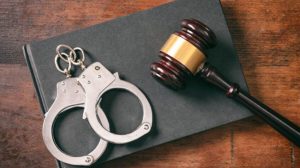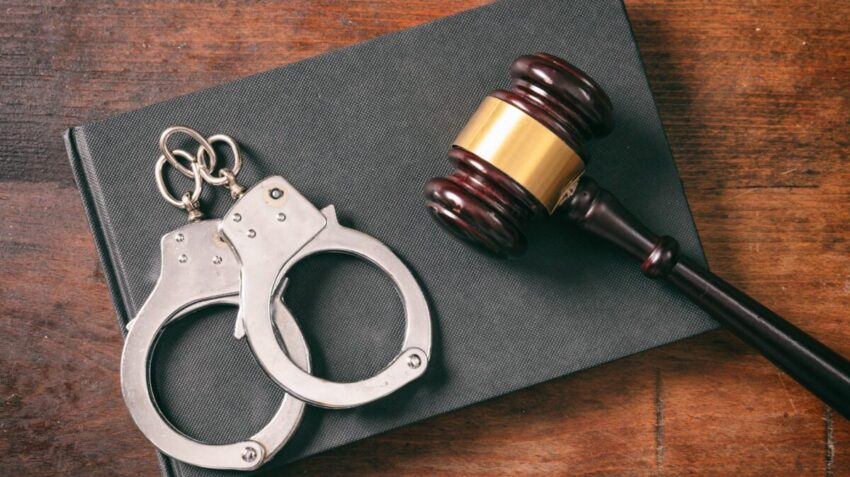Advocate. A profession that since antiquity has been associated with the search for truth, the contest of minds in the courtroom, the defense of those whom society or the state has already begun to judge not only in a legal but also a moral sense. But what if the lawyer himself finds himself on the other side of the barricades? What if the one who should be the personification of human rights protection becomes a violator of the law?
During a recent professional development event at the Higher School of Advocacy, Doctor of Law, lawyer, associate professor of the Department of Criminal and Criminal Procedural Law of NaUKMA Oleksiy Gorokh spoke about this. His speech did not leave any participant indifferent – because it was not just about criminal law, but about a mirror in which each of us must look from time to time.
 Criminal liability of a lawyer is a sensitive, difficult topic, and at the same time, it is mandatory to understand. Because it is not only about extreme cases – bribery, forgery, fraud. It is about the fine line between “protecting the client’s interests” and justifying the illegal. About whether our profession really always stands on the side of the law, or sometimes shifts – under the pressure of money, connections, promises, or fatigue.
Criminal liability of a lawyer is a sensitive, difficult topic, and at the same time, it is mandatory to understand. Because it is not only about extreme cases – bribery, forgery, fraud. It is about the fine line between “protecting the client’s interests” and justifying the illegal. About whether our profession really always stands on the side of the law, or sometimes shifts – under the pressure of money, connections, promises, or fatigue.
A lawyer who incites a client to give a bribe is no longer a mistake. It is a betrayal of the oath. Someone who takes money “to resolve an issue” but does not actually hand it over to anyone is not a skilled intermediary, but a fraudster. And someone who abuses their status to trade influence or organize illegal travel abroad ceases to be a lawyer and becomes a participant in a criminal scheme.
However, Gorokh emphasized: not everything is so clear-cut. The law protects a lawyer no less than any other citizen. And even more, it provides for special guarantees: the status of a suspect is granted only with the signature of the Prosecutor General or his deputy. Inspection, search, seizure of documents – only in the presence of a representative of the Bar Council. And any interference with lawyer’s secrecy is an exception, not the rule.
But these guarantees are not a privilege. They are a tool for protecting the profession, not a cover for manipulation. Because no norm, no procedural procedure will protect a lawyer from the consequences if he himself has crossed the line.
When a lawyer, under the guise of a warrant, participates in a process without real authority, it is not a formality, it is criminal liability. When he “helps” a client with forged documents or a fake medical report, it is not a service, but complicity in a crime. And there are more such examples than one would like to believe.
Gorokh cited high-profile cases involving lawyers, and these examples sounded like warnings. They are about how easily one can lose one’s professional reputation, and how difficult it is to restore it. Because a criminal case is not just a matter of legal liability. It is a shadow that falls on the entire legal community.
General criminal offenses (non-occupational)
-
A drunk lawyer opens fire from a hotel balcony. Qualification — Part 1. 4 Art. 296 of the Criminal Code of Ukraine (hooliganism).
-
$800 “in hand” to the investigator to avoid the protocol – Articles 296 and 368 of the Criminal Code.
-
Lawyer is the organizer of a drug gang. Full set: h. 1, 2 Art. 255, part. 3 Art. 307, part. 3 Art. 311 of the Criminal Code.
-
Odessa lawyer joins pro-Russian armed formation — part. 2 Art. 28, part. 1 Art. 260 of the Criminal Code.
-
41 fake reports about bombings of courts and ASNs — part. 2 Art. 259 of the Criminal Code.
Offenses in the interests of the client
It’s a real “slippery slope” when a lawyer—in his office, with a warrant in hand—decides to help a client… by committing a crime.
-
Forgery of documents, disclosure of bank secrets, interference with the court’s document flow system.
-
Misleading the court (Article 384), obstructing a witness (Article 386), disclosing a pre-trial investigation (Article 387).
-
Failure to comply with a court decision, concealment of a crime – all these are frequent articles of indictment.
Incitement to give a bribe (to a client!)
A classic of the genre — the lawyer “recommends” to pay, but keeps the money for himself.
-
Incitement to pay a $2,000 bribe to a judge for closing cases — VAKS, case No. 991/2024/24, 04/24/2024 .
-
$2,500 for ICE officials who were supposed to return property — Lutsk, No. 161/9165/13-k .
-
$2,000 for a “positive expert opinion in a traffic accident case.” Detained while receiving.
Illegal departure from Ukraine — a lawyer as a “scheme operator”
-
A lawyer from Drohobych promised to travel under the guise of accompanying a sick mother. The cost was $16,000, and he received an advance of $5,000.
-
Lawyer from Kyiv region “sold” fictitious documents to tax evaders. Detained with $45,000 in cash.
-
A lawyer from Kharkiv led clients through Vinnytsia for $7,400 by organizing the forgery of documents.
Abuse of influence (Article 369-2 of the Criminal Code)
-
$900 for “influencing a judge of the Khotyn District Court.”
-
$6,000 for a non-custodial sentence — No. 409/1465/16-k, sentence dated 07/27/2016 .
-
Kharkiv: lawyer “resolved” ineligibility through VLK. No. 641/5099/23, verdict dated 09/27/2023 .
-
$17,300 for establishing a disability for a child of a military serviceman.
-
$7,000 for “removing a conscript from the wanted list.”
-
$1,600 for ignoring marks at the Probation Center.
Misappropriation of clients’ property is fraud, Article 190 of the Criminal Code
-
He embezzled $15,000 “to resolve the issue” with the court. He was arrested on the spot.
-
460,000 – 800,000 UAH in promises to find missing servicemen. He withdrew money from the cards of servicemen’s wives.
-
$30,000 for “police connections” – had none. Detained during transfer.
-
$500,000 — Unfinished Fraud Attempt. Two Lawyers Arrested with $51,000.
Representation without authority — new article 400-1 of the Criminal Code
-
Attending a meeting with a suspended certificate.
-
Issuance of a warrant without a contract.
-
Fictitious details in the documents – 400-1, 358, not 366 of the Criminal Code.
Pre-trial investigation against a lawyer: special status
-
Only the Prosecutor General, his deputy, or the head of the regional prosecutor’s office can issue a complaint.
-
Failure to comply with this requirement makes all evidence inadmissible. Resolution of the Supreme Court of Ukraine No. 523/17459/23, 01/31/2024 .
-
A search can only be carried out in the presence of a representative of the Bar Association. If notified in advance, a search can be carried out even without one.
Conclusion
This blog is not an accusation or a recount of betrayals. It is a reminder: a lawyer is not untouchable. But he has high standards. And he must bear responsibility — to the client, the profession, the state, and the law.
Because if the defender himself becomes a threat to law and order, the system breaks down from within.




